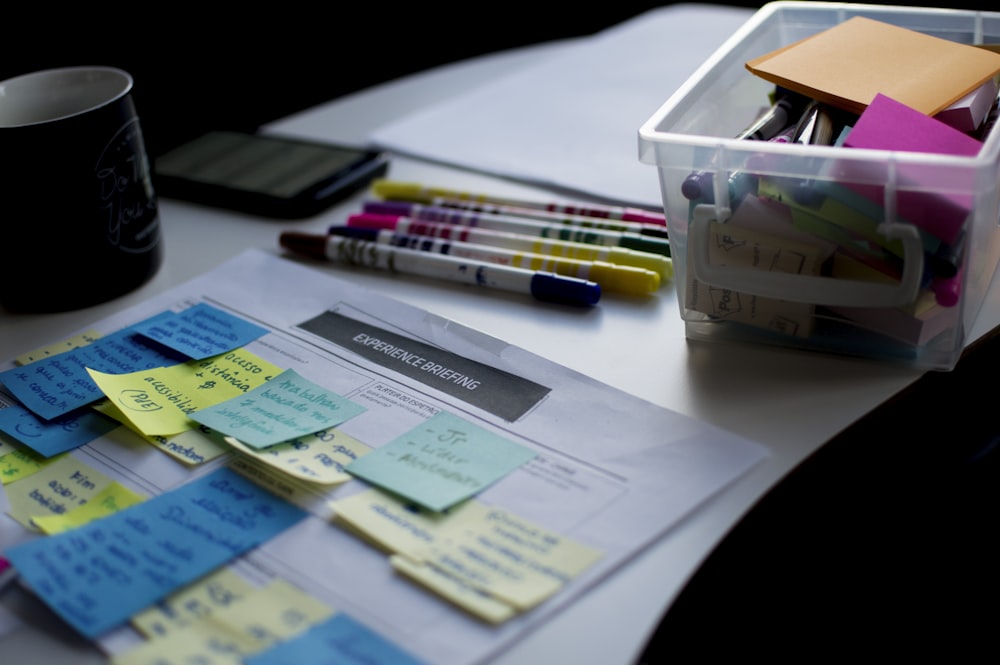Whether you are studying for your year six SATS, end of year grading level tests at high school or GCSE and A-Levels exams there is no denying that it can be a stressful time. The one thing that any exam or test has in common with another is the fact that there is plenty of information that you need to remember. And that can be where the problems begin. Trying to commit to memory the things that you have learnt over the last term, year or even the last couple of years can seem like an impossible task. Don’t panic there are plenty of ways in which you can help yourself by improving your memory in the time leading up to your exams, no matter which ones they are.
Read on to see our handy tips to help improve your memory.
Organise Your Space
It seems obvious really, but it is really important to organise your study space so that you can find everything you want easily and without any added stress. A productive study session will be achieved far more easily if you have everything to hand and are not distracted by going off to find a notebook, a pencil or your missing textbook. Being organised will also help you to relax, and in turn, that should help you to be more motivated to get on with your revision – both of these are important factors when it comes to improving both your concentration and your memory.
Be Active
Regular exercise is very important for your body, and it is also vital to helping ensure that your brain remains sharp for studying. You don’t need to run a marathon to be active; get out and go for a walk, play a game of football with friends or hop on your bike and get some fresh air. This will help to stimulate the growth of your muscle cells not only keeping your body but also your mind in good shape. And the good news is that being active doesn’t need to keep you away from your studies for long – just a 20-minute period of exercise can really help to improve the way your memory functions.
Make Notes
Making notes on the things that you have been studying is a great way to help commit them to memory. Notes don’t have to be boring, do whatever works best for you. If you want to be creative, then go for it. Use colour and really make your notes “pop”. Everyone is different; some people prefer written notes in lots of different colours, others like to use highlighters, but there are other alternatives. Mind maps can also be a great way to memorise things they have been proven to be a very effective method of committing information to the brain, and they are also great for memory recall. Putting the information that you need onto paper is a great way of organising it to make it easier to learn – there is no right, or wrong way of doing this – there is only the best way for you.
Avoid Temptations
We all understand how easy it is to be distracted, especially is the temptation is far more appealing than your revision. With that in mind, it is really important to ensure that there are no temptations around when you are working. That means no mobiles or other electronics such as a tablet – you might think you can limit yourself to just one message or a couple of minutes chatting to friends, but time can all too easily get away from you and you will find yourself having lost more time than you planned. Make sure that your desk is not filled with clutter; otherwise, you are far more likely to find something to distract you. This should really help you to focus your attention on your studies.
Get Some Sleep
It can be hard to know when to switch off with your revision, but it is really important to ensure that you get plenty of sleep. There has been plenty of research into sleep that has shown that a positive sleep pattern can actually help to improve your memory. It is important to ensure that you are getting the recommended amount of sleep each night. Experts suggest between 7-9 hours of sleep is required in order to ensure that you are well rested. This will allow you to achieve the best from your studies and will assist you in retaining all that important information properly.
Things to Avoid
When you are studying there are some things that you should avoid doing as these can really hinder your memory:
Multi-tasking – don’t try to do too many different things at one this will make it really difficult for you to sustain any decent levels of concentration for any length of time and won’t help you remember things in the long term.
Avoid cramming – Cramming is not good for your long-term memory so ensure that you break any revision you have down into manageable chunks. Tackle one chunk at a time and ensure that you get a break in between each one. This will allow you to retain more information over the course of your revision.
Water – Not drinking enough water, or other liquid, can really affect your memory so make sure that you are drinking enough. Have a water bottle handy so that you can take sips while you study and refill it when you have a break. Having a drink of water when you wake can help to give your brain a kick start.
Conclusion
Studying, especially revision, can be tricky. Use our handy tips to help set up the best environment for your revision and while you might not think you are retaining the information you might just be surprised. Memory is a funny thing, and we remember more than we think, often finding the right answer when we need it most from all that stored information.


